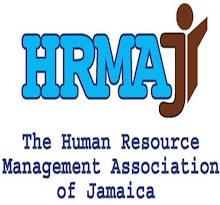“If
you build it, they will come…” This is not exactly all true when planning a
meeting. A lot of work goes into producing a successful meeting and the
majority of work is definitely in the primary stages of research, design, and
planning. When this is done properly, the remaining stages of co-ordinating and
evaluating the meeting will bring forth the desired outcome.
Attendance IS the lifeblood of a meeting! Whether the reason for meeting
is a training session, sales presentation, corporate retreat, customer/employee
incentive programme, or themed event, faulty meeting planning will cause
unwanted results, including poor attendance.
People come together in a meeting to share ideas and visions, to make
decisions, to be entertained, or to solve problems. As a planned communication
encounter between two or more persons for a common purpose, the meeting must
appeal to the intended attendees. Attendance is a meeting planning issue and
not just an issue for sales and marketing or public relations, which are parts
of the meeting planning process. Attendees want results. They want
information. They want the tools and techniques they can use immediately.
Attendees will attend meetings that satisfy their needs. All of these concerns
play an essential role in the meeting planning process.
The consequences of poor meeting planning can result in premature cancellation,
complete cancellation, wasted time, termination of employees, as well as
ineffective use of resources. Poor or faulty meeting planning can also have a
negative impact on a company’s budget thus affecting other cost factors, not to
mention, management embarrassment or discolouring a company’s image. In a
poorly attended meeting, money goes down the drain without ever achieving the
desired results.
Poor meeting attendance can come from several overlooked attributes of faulty
meeting planning. Companies with tighter budgets can get hurt by inadequate
meeting planning preparation and poor communication. If a previous meeting was
successful, there is no justification or guarantee that when repeated, will
produce the same results. Change happens! People’s needs change! Environments
change! Meetings need to adequately address current critical issues that apply
to those attending. Therefore, the information to be shared with the attendees
must have the potential and capability of being applied immediately or be
within their areas of work and interests. Producing frequent lower-quality meetings
is also a sure-shot indicator for attendees to lose interest and not show up.
Let us look at several ways you can avoid poor meeting attendance.
- Know the attendees! This cannot be expressed or emphasised enough. This is key to the success of any meeting planning process. To know the group helps in the selection and negotiation of all the necessary ingredients to put the meeting plans together. Knowing the attendees requires research that will provide demographics – the important element and information that must be collected and reviewed carefully.
- Establish objectives that are specific, measurable, and appealing to the attendees. Failure to meet the primary objective to the meeting means that the meeting has failed.
- Design programmes that apply to the attendees’ needs and interests. Believe it or not, the decision to attend a meeting is at the sole discretion of the attendees. They are the ones who need to be motivated as they want to know what is in it for them.
- Select a venue that will contribute to attendees’ presence and participation. The location and type of venue compliment the design of the meeting.
- Always plan ahead. Do not wait until the last moment to begin preparations. Meeting planning is a serious business that involves strategic decision-making. Meetings should not just be planned, they should be staged as sensory, financial experiences that are designed to evoke the senses and make people attend and be able to take something away from that event.
- Take a risk and try something different. Each person attending a meeting brings a different level of knowledge and expertise to the programme. Understand that the attendees are also customers who attend meetings with different ideas, values, and expectations.
- Engage the services of a professional meeting planner. Good partnerships leverage both internal and external resources to achieve common objectives. The ultimate goal is to achieve more with less.
The challenges and trends of today’s economy can be very difficult on any
organisation. Organisations need to be creative to stay alive. Organisations
need to realise that meetings constitute a substantial portion of their budgets
and should take the necessary steps to pay attention to the (real) cost
of producing a meeting. So as not to lose money unwisely and to achieve return
on investment, a company must take a closer look at the way it conducts
meetings.
Meetings are here to stay and attendance is essential to making them
successful. Attendees are customers. Pay attention to their needs by producing
meetings that are worth their while to attend.
Source: Mrs. Margaret Lawrence - HRMAJ, Western Chapter



This comment has been removed by the author.
ReplyDelete